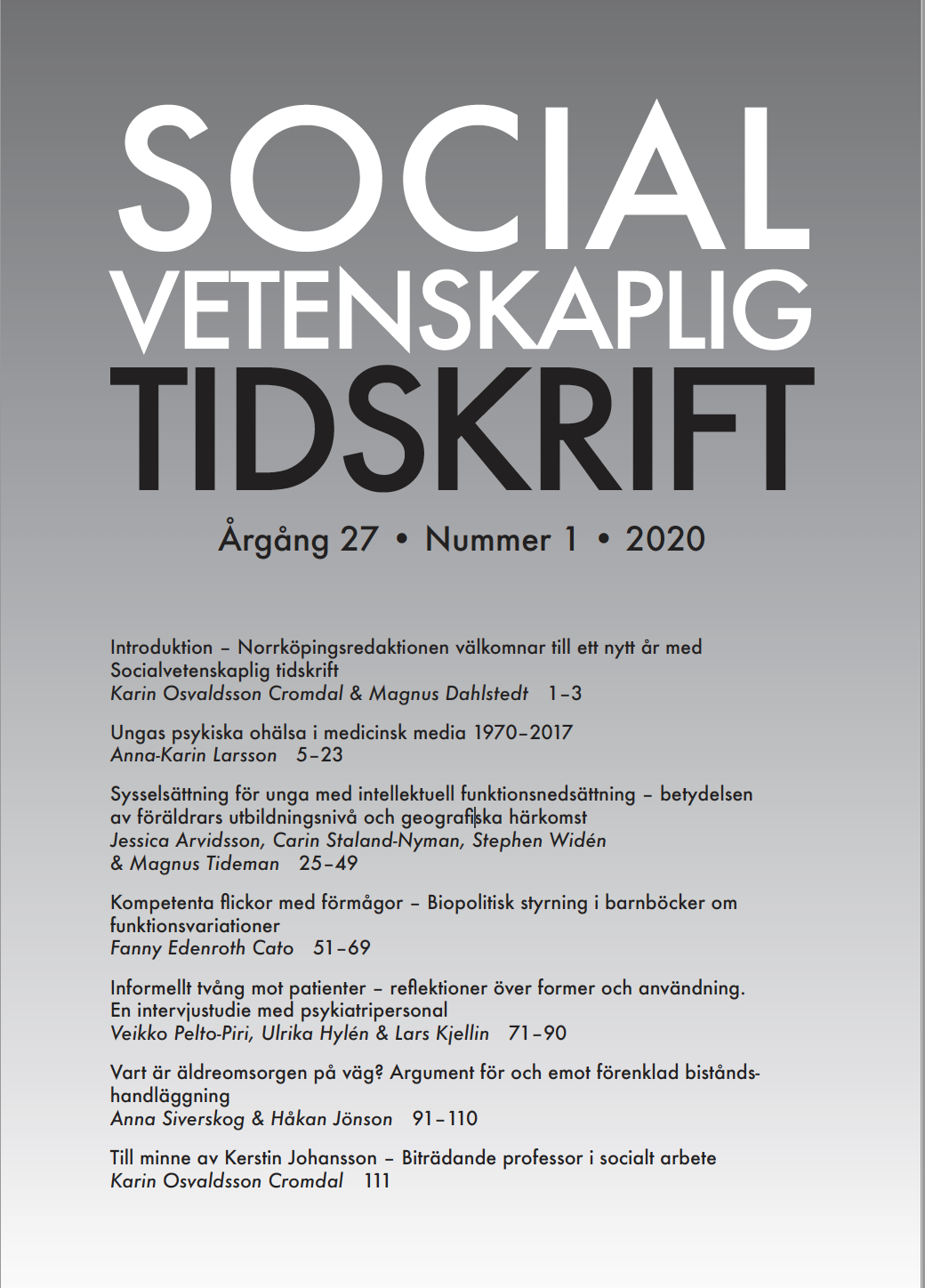Sysselsättning för unga med intellektuell funktionsnedsättning
- betydelsen av föräldrars utbildningsnivå och geografiska härkomst
DOI:
https://doi.org/10.3384/SVT.2020.27.1.3411Abstract
This study explores and analyses the association between parents’ geographical descent as well as their level of education and their children’s type of occupation after graduating from Swedish upper secondary school for pupils with intellectual disability (USSID). This is a registry study in Halmstad University Register on Pupils with Intellectual Disability (HURPID), the register which includes all people that have been granted support and service under the Swedish Act on Support and Service to Persons with Certain Functional Disabilities (LSS) and the Integrated database for Labour Market Research (LISA). The data analyses are based on multiple logistic regression. N=12,269. The study reveals that the parents’ geographical descent and their level of education affect the former pupils’ type of post-school occupation. Children of less-educated parents tend to have paid employment and children of highly educated parents tend to participate in disability day programmes. Parents who are highly educated are assumed to have a greater level of the “welfare skills” that are required in order to manage today’s welfare system and get services and activities such as daily activity. Parents who are less educated are assumed to have their employment in occupations with low demands for formal competence and might be able to provide their child-ren with the contacts that they need to get a job there as well. It is concluded that society’s knowledge and awareness of different background factors (e.g. gender, age, municipality of residence, social background) among former pupils from USSID needs to increase in order to give young adults with intellectual disabilities equal opportunities for an occupation that they have reason to value.
Downloads
Published
How to Cite
Issue
Section
License
Allt material i Socialvetenskaplig tidskrift publiceras sedan 2022 (Vol 28 Nr 2) med omedelbar öppen tillgång (open access), under Creative Commons-licensen CC BY 4.0. Upphovsrätten till innehållet tillhör respektive författare.
Allt innehåll i tidskriften är fritt tillgängligt utan kostnad och får fritt läsas, laddas ned, kopieras, delas, skrivas ut och länkas. När innehållet används måste författare, källa och licens anges. Författaren kan fritt göra sin publicerade text tillgänglig på institutionella och internetbaserade arkiv, exempelvis sitt lärosätes digitala arkiv eller andra tjänster för detta.
Inga publiceringsavgifter tas ut vid publicering i Socialvetenskaplig tidskrift.


